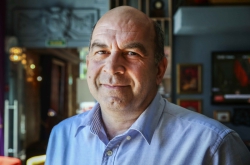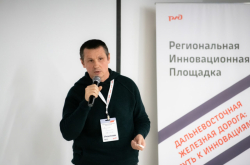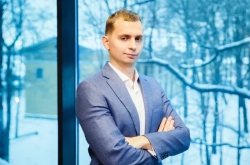On February 21 and 22, ITMO University will host the admission to the inter-university venture creation nanocenter's club. The event will be held as a "Build a Company. Sell a Company" business game — the students will create their own inventions and build companies they will be aiming to sell. The game was developed by Denis Kovalevich, stockholder and CEO of the Troitsky "Technopark" nanocenter.
Denis, please tell, how the game was developed, and what shall its participants expect?
We've created the game "Build a Company. Sell a Company" at beginning of the previous year. Its main goal was to teach us to analyze our skills and thinking paradigms, and understand whether they are good for a technical entrepreneur. We chose the game format, as it gives an opportunity to experience something that takes lots of time and effort in real life without any risks.
After some time, we adapted the game for students, so that they could also try themselves in creating a new industry. I'd like to note that creating a new industry from the scratch and trying oneself in it in different roles is the main point of the game. For instance, the participants can take the role of entrepreneurs who create companies and then sell them, or become engineers who work with these entrepreneurs on creating new inventions and products.
 School students at the "Technopark" Credit: technospark.ru
School students at the "Technopark" Credit: technospark.ru
Last year, we've conducted a series of games for students, and it proved to be extremely efficient. Students actively participated in the games, and many of them became part of our employee pool. After they graduate and will be ready to work as entrepreneurs in our companies, we'll be open to them.
During the upcoming games, the nanocenters' heads are planning to host an admission to the inter-university venture creation nanocenter's club. What is it?
It was last year when we've decided on launching the inter-university venture creation nanocenter. "Inter-university" here means cooperation between two partners — St. Petersburg Polytechnic University and ITMO University. Surely, we expect other universities to join in, as well. The club will be open for any on them — both to Saint Petersburg universities and Russian universities in general. And the upcoming game will help creating the nanocenter's club.
This club will be an open platform for everyone: for both first year Bachelors and Masters who are about to graduate. Even on this stage, they will be able to understand more about the role of entrepreneurs and engineers in business. Also, our game will help them try out the new model of serial technological entrepreneurship — or venture creation, as it is often called. If it turns out that they can do it or will be able to in the future, they can stay in this club until they are ready to move on to working in a particular field of business.
 Troitskynanocenter "Technopark" Credit: technospark.ru
Troitskynanocenter "Technopark" Credit: technospark.ru
We, as well, are ready to show some of our inner workings to a wide audience: as experienced entrepreneurs, we can share about how we create companies, what technologies we use and so on. And to those who can relate to what we'll be talking about, we’ll say: "Great, there are ways to becoming part of this process".
Can this format be called unique for our country?
I think that ours is the first entrepreneurial club of this type in Russia, the first club dedicated to professional activities on serial technological entrepreneurship. There are some formal associations of reputable businessmen, but our club is entirely different. It is a platform for young people, some of them may have just started their business while studying at their universities, or are thinking about doing that, but don't know what to start with, and for young engineers who work for such entrepreneurial projects. Now, they will have a place where they can communicate and get the unique experience of building one's own high-technology company.
 A tour of "Technopark" Credit: technospark.ru
A tour of "Technopark" Credit: technospark.ru
Last December, the Association of Clusters and Technoparks published the results of the Second National Rating of Russia's technoparks. 25 best technoparks were chosen from more than a hundred, and Troitskynanocenter "Technopark" was deemed best. What contributed to your success?
We invest a lot into technological infrastructure — we've developed it well, and it works according to business logic. This is not some system of dotation centers that were opened throughout the country, but a full-fledged technological business, which provides a full range of services and is aimed at once-only and small batch jobs. This means that our common clients are startups and young companies. During three and a half years, we've created 100 new technological companies. It's really simple: the business logic according to which we work allows startups develop a lot faster.
This year, we've almost finished the first stage of creating our own technology of serial entrepreneurship, and now our task is to introduce it into the nanocenter network, as franchises, amongst other things. By doing that, we hope to increase the quality of business in new companies.
When talking about startups, one can’t help but think of people like Elon Musk or Steven Jobs. Are modern startupers still geniuses who are capable of doing something no one else can, or has the situation changed?
No, now the story is different. We don't wait for some genius to appear — we’ve made entrepreneurship a profession. It works like with any other job: anyone can learn to do it. So, we've done what was impossible some 200−300 years ago, when entrepreneurship was the domain of rare geniuses. Modern entrepreneurs are normal people who just had the will to start doing something that they yet don't really understand, and cooperate with us so as to build their own companies.





